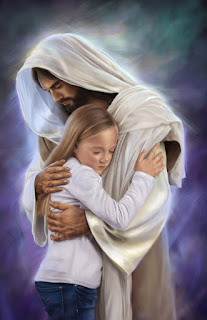The greatest challenge in the world today is not surviving the pandemic, lack of entitled freedoms or even financial ruin. The greatest challenge in the world today is to love one another. The corroding sociologically programmed traits of self-centerdness, victim mentality, differing political convictions, and rampant sinful tendencies have come to undermine the neighbourly concerns we once had for each other and have hardened our hearts towards the tide of humanity. As the world has become less and less attractive, I have been failing of late not to be swept up in that tide.
I am presently re-visiting the book of Exodus. Those of you who have studied this book will be familiar with the 'stiffnecked' children of Israel (Exodus 33:5). Over and over these people failed to respect the God who delivered them out of bondage. But who I want to talk about here is the person who 'led' them out of bondage, and this person is Moses. I cannot say enough about this man who has earned my ardent admiration....but I'll try to be brief. Moses was brought up knowing the Hebrews were his people (Exodus 2:11). He forsook Egypt when 40 years old, in faith, believing God would by his hand deliver the Hebrews (Acts 7:23-25), preferring God to the riches of Egypt (Hebrews 11:24-27). He went from the privilege of his Egyptian upbringing to slavery and then to being a shepherd for 40 years (Acts 7:23-30) before God deemed him ready for his pre-destined calling.
What impresses me the most about Moses is this. When God appointed him to his calling on Mount Horeb, He told him: 'thou art in the similitude of my Son' (Moses 1:6). This, among other similarities between Moses' life and the Saviour's, has clear reference to Moses delivering the children of Israel out of physical bondage even as Christ would deliver us from spiritual bondage. This physical similitude however, is only a precursor to an even greater one. When the children of Israel committed their grave sin against Jehovah by worshipping the golden calf, Moses' reaction was not one of condemnation. Instead of considering them ripe for destruction and recommending them to Jehovah for extinction, he offered his own life in recompense (Exodus 32:32). This is being in the true similitude of the Son.
Moses led 2 million people out of Egypt and loved them through 40 years of unnecessary wandering putting up with their tedious murmuring, lack of faith and spiritual immaturity, even at the peril of his life (Exodus 17:4), yet he still loved them....even as the Saviour has loved us, with our tedious murmuring, lack of faith and spiritual immaturity. Moses could withstand the frustration of loving imperfect people because he was in the similitude of the Saviour's heart. Could this be possible for us? Could we come to love the humanity that is being swept up in the tide of hate and wickedness and destruction?
Moroni teaches us of a love without which we are nothing; a love that survives hatred, animosity, harm, racism, sin, abuse, racial difference and all the inhumanity we are capable of; a love that ensures salvation at the last day (Moroni 7:44,47). This love is a gift bestowed upon those who are true followers of Christ (Moroni 7:48) and not a love we are capable of on our own. This love ensures that we become the sons and daughters of God so that we will be like Him at His appearing (v 48). This love will ensure we endure the here and now and in the end it will bring us home. This love is the foundation of the glories of heaven and the cradle of eternity. This love is the pure love of Christ, a love that endures forever and ever.
- Cathryne Allen
(It is recorded in Numbers 1:45-46 that the children of Israel numbered 600,000 men; meaning only men over 20 years and over who were capable of going to war. When women and children are added to that number, the multitude could have been well over 2 million people. (LDS Institute Old Testament Student Manual, p 119)
- Cathryne Allen, Did Not Our Hearts Burn When He Opened To Us The Scriptures?
published 2021 by amazon.com




































